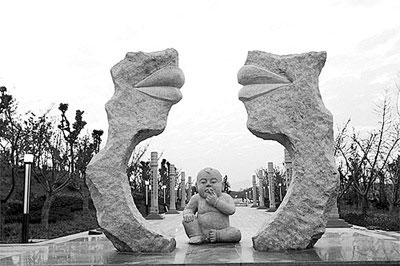A drunken man surnamed Dong walked into a Chongqing police station one evening in late 2013, shouting, ‘I’m denouncing my son in the name of righteousness!’ 大义灭亲. His son’s ‘crime’ was to have invited his mother, who had abandoned the family ten years earlier, to his thirtieth birthday dinner. Mr Dong had stormed out of the dinner and gone straight to the police station. He felt entitled to denounce his son for neglect because the traditional supreme Confucian virtue of ‘filial piety’ 孝, the responsibility of sons and daughters to respect and look after their parents, is enshrined in the amended Law of Protection of the Rights and Interests of Elderly People 老年人权益保障法, which came into effect on 1 July 2013. The 2013 law was an amendment of the original 1996 law of the same name that identified the rights and responsibilities of older citizens. These include the responsibility of the state to provide welfare as well as social programs that utilise the expertise and knowledge of the elderly.
The 2013 law states its purpose as ‘promoting the Chinese nation’s virtues of respecting the elderly, nurturing the elderly and assisting the elderly’ 弘扬中华民族敬老养老、助老的美德. Key provisions relate to the responsibility of children to their parents. The law also increases concessions on basic services, improves access to social services and pensions and encourages local governments to shoulder more of the burden of care, recognising that the long-standing one-child policy means most elderly parents in the future will only have one child to look after them.
Legal cases involving parents denouncing their children for ‘unfilial’ behaviour date back to the Qin dynasty (221–206 BCE). Fifteen major city governments based a 2013 public education campaign about the new law on the famous ‘Twenty-four Filial Acts’ 二十四孝 of the Yuan dynasty (1271–1368), exemplary and occasionally grotesque filial behaviours (a son tasting his father’s faeces to assess his health, for example) promoted through graphic representation.
Practical considerations guide today’s law. In 2013, there were more than 200 million people over the age of sixty in China, some fifteen percent of the population. By 2030, roughly one in four Chinese will be over sixty. Widespread media speculation about a pension fund deficit created panic and led the Ministry of Human Resources and Social Security to claim in February 2014 that the fund was 400 billion yuan in surplus. Still, the case highlights some of the challenges the country faces.
Critics of the filiality law argue that the primary responsibility for aged care ought to lie with society, not individuals, many of whom may be incapable of looking after their parents. Although the law divvies up responsibility for caring for the elderly between individuals, local and national governments, the burden falls most heavily on those born in the 1980s and beyond. Others, including micro-bloggers, claim the law sets the bar too high, leaving most children vulnerable to accusations of being ‘unfilial’ — a complaint made about the original Yuan-dynasty precepts as well.
As for Dong, it turned out that he was only fifty-eight. His son is safe for another two years, at least legally.
Notes
Anonymous, ‘Father reports son for being unfilial after son invites his separated parents to his birthday’ 儿子生日 请离异父母团聚 父亲吃醋举报儿子不孝, Chongqing Wanbao 重庆晚报, 13 December 2013, online at: http://news.sina.com.cn/s/2013-12-13/133628977125.shtml
Quanguo Renda Fagui Ku 全国人大法规库, ‘The Law of the Protection of Rights and Interests of Elderly People in People’s Republic of China’ 中华人民共和国老年人权益保障法, 4 August 2005, online at: http://www.gov.cn/banshi/2005-08/04/content_20203.htm
Xinhua She 新华社, ‘Order of the President of the People’s Republic of China’ 中华人民共和国主席令, 28 December 2012, online at: http://www.gov.cn/flfg/2012-12/28/content_2305570.htm
Zhuang Pinghui, ‘New standards on filial piety cause unhappiness’, The Southern China Morning Post, 20 August 2012, online at: http://www.scmp.com/news/china/article/1018761/new-standards-filial-piety-cause-unhappiness
CIA: The World Factbook: China, 22 June 2014, online at: https://www.cia.gov/library/publications/the-world-factbook/geos/ch.html
Anonymous, ‘Paying for the grey: Pensions and retirement’, The Economist, 5 April 2014, online at: http://search.proquest.com/docview/1513382424?accountid=8330





